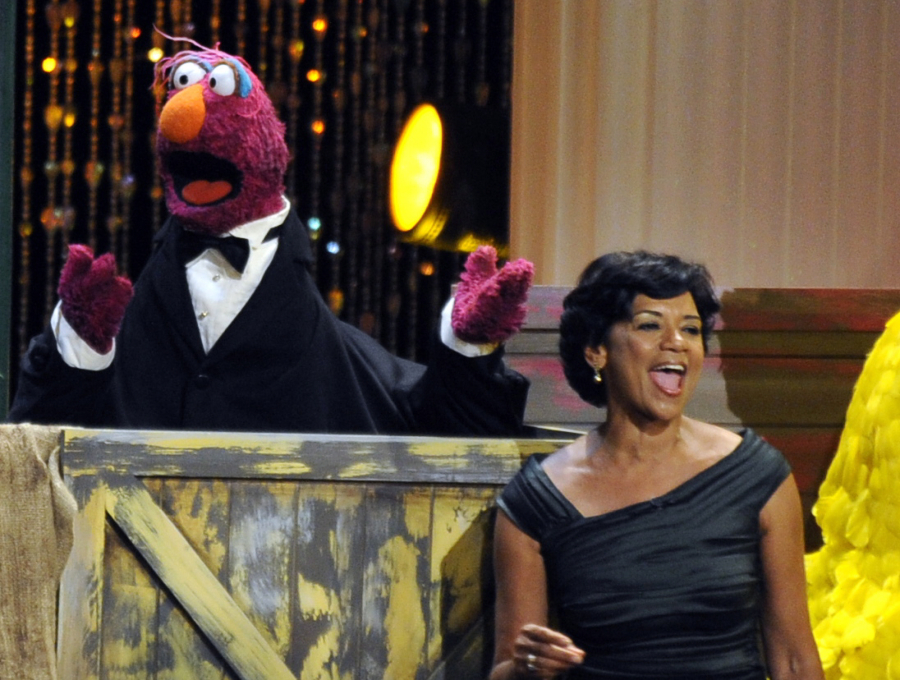Long before “Sesame Street” premiered, Sonia Manzano lived there — minus the Muppets.
Manzano spent 44 years on the beloved children’s show as Maria, joining two years after its 1969 debut that showed a place she knew well but TV audiences did not.
“What hooked me on ‘Sesame Street’ was that it was set in this urban environment that looked like the Bronx neighborhood that I was kind of raised in,” she said. “Up until that time, you never saw a city in a kids show. And what was called then an inner city, you certainly never saw any of that. … And I was charmed that there were people of color for the first time on television.”
Manzano still cherishes her time on the show, the subject of a new documentary film, “Street Gang: How We Got to Sesame Street,” available now via video on demand.
“I am so thrilled that [director Marilyn Agrelo] has touched on an aspect of the show that isn’t often touched upon, and that’s the artistry of the show and how all of these creative people just crashed together in 1969, propelled by the civil rights movement, propelled by what was going on in the country socially,” Manzano, 70, told the Daily News.
“It was a big explosion, like the Beatles, where all of the sudden they changed the landscape of artistry and how we absorb information.”
The series premiered with the initial intent to provide educational programming for children in low-income communities. But unlike other children’s shows, “Sesame Street” didn’t talk down to its viewers and instead educated them on real world issues, including racism and death.
Manzano came on board in 1971, with the character of Maria meant to mirror the actress in personality and milestones.
“I think … a reason the show has been on the air so long is that they allowed the cast members to age, number one,” said Manzano, author of several books including the memoir “Becoming Maria” in 2015. “I was a feminist, I fell in love, I got married, I had a baby.”
The other key factor, she said, was that the show — and in particular, writer and director Jon Stone, who helped create the series along with Big Bird, Cookie Monster and Oscar the Grouch — sought out real people.
“I was nervous about that at first,” recalled Manzano, who retired from “Sesame Street” in 2015. “It’s easier to play a character. And I kept saying, ‘What’s Maria like?’ And they kept saying, ‘No, we just want you to be yourself.’ … So really, Maria is me on purpose.”
When it came to communicating with viewers, though, Manzano dug into what she sought out as a kid.
“I tried to remember how I used to watch television looking for comfort,” she said, adding that some “Sesame Street” viewers would also be “looking for order and comfort and I’m gonna give it to them.”
Though “Sesame Street” was “in the adult consciousness immediately,” Manzano said, it wasn’t until the 1980s that the show’s impact truly hit home for the actress as she became a wife and mother. Maria’s parallel wedding and motherhood, she said, proved audiences “were involved and invested in the lives of the humans” on the show.
Of course, just as “Sesame Street” drew from its real life players, it also took and continues to take “its cues … from what’s going on in our society,” said Manzano, who hopes that, along with the artistry, hits home for “Street Gang” viewers.
“This is a creative expression that came out of the political turmoil that was in the ’60s. And I hope that whatever expressions people are coming up with now, in 2021, that they realize … an artistic avenue will get you further,” Manzano said. “And throw in a few jokes, that always helps too.”



